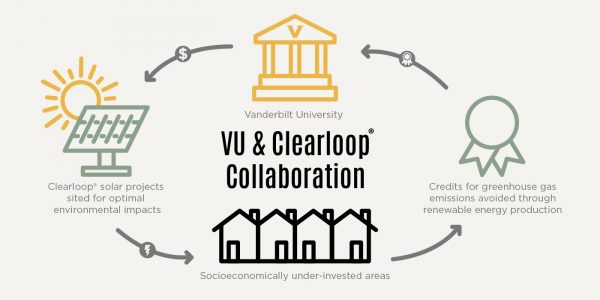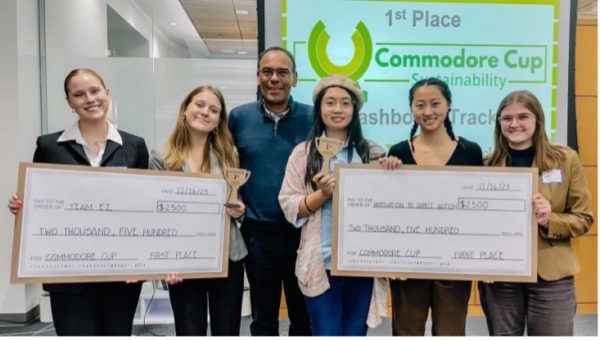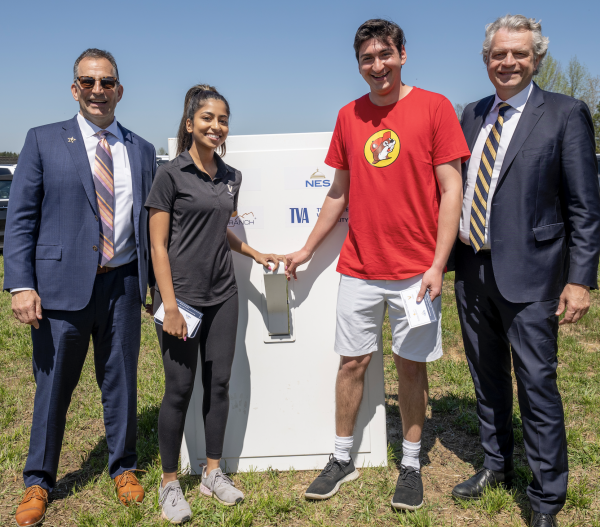Vanderbilt continues carbon neutral collaboration with Clearloop, supporting rural West Tennessee solar farm
Vanderbilt University will help expand access to clean energy in Brownsville, Tennessee, while further offsetting the institution’s carbon footprint—thanks to the second of three solar farms being developed through the university’s multiyear collaboration with Clearloop, a subsidiary of Silicon Ranch, an alumni-founded solar company based in Nashville.
Vanderbilt’s latest investment in solar energy will be in a small rural community in central Haywood County, about 60 miles east of Memphis. It is expected that 107,985 metric tons of carbon dioxide equivalent will be offset over the life of the Brownsville project, which will provide low-cost clean energy to approximately 600 local homes annually through the local power company, Brownsville Energy Authority.

“I look forward to the second phase of Vanderbilt’s investment with Clearloop to decarbonize the grid and broaden clean energy access in the Southeast,” said Eric Kopstain, vice chancellor for administration. “Two of Vanderbilt’s core values are to be a good citizen of our region and to make our campus more sustainable. By investing in providing clean energy for Brownsville in West Tennessee, we are able to achieve both these goals.”
About Brownsville
There are approximately 17,000 residents in Brownsville with a 57 percent minority population.
With a rich history in civil rights and music, Brownsville has put a priority on economic development. It is home to the West Tennessee Delta Heritage Center and the birthplace of the late musical icon Tina Turner. Haywood County played a significant role in Tennessee civil rights history with Black voter activism and “Tent Cities” that were set up for evicted African American tenant farmers during the 1960s. Today, Haywood County is the location for Blue Oval City, a $5.6 billion all-electric Ford vehicle manufacturing facility scheduled to open next year.
Clearloop expects construction of the solar farm project to be completed in 2025. “We are excited for the next steps on this journey with Vanderbilt, with whom we share a passion for bringing clean energy projects to life that both maximize the carbon impact on the grid and drive investment in historically under-invested areas,” said Laura Zapata, CEO and co-founder of Clearloop.
The Brownsville solar project will be developed, owned, and operated by its parent Silicon Ranch for the lifetime of the project. Through this disciplined and community-focused approach, Clearloop will maintain a long-term vested interest in the West Tennessee region.
Educational Initiatives on Campus
Several new educational initiatives have “blossomed” from the university’s collaboration with Clearloop, including internship opportunities at Silicon Ranch for Vanderbilt students.
Clearloop partnered with the Wond’ry, Vanderbilt’s Innovation Center, last year on the inaugural Commodore Cup, a 10-week innovation challenge centered around sustainability themes. One of the two tracks challenged students to create an interactive dashboard encouraging Vanderbilt stakeholders to take part in the university’s commitment to climate action. Clearloop supported the challenge, and Zapata served as one of the judges.


